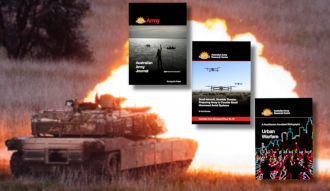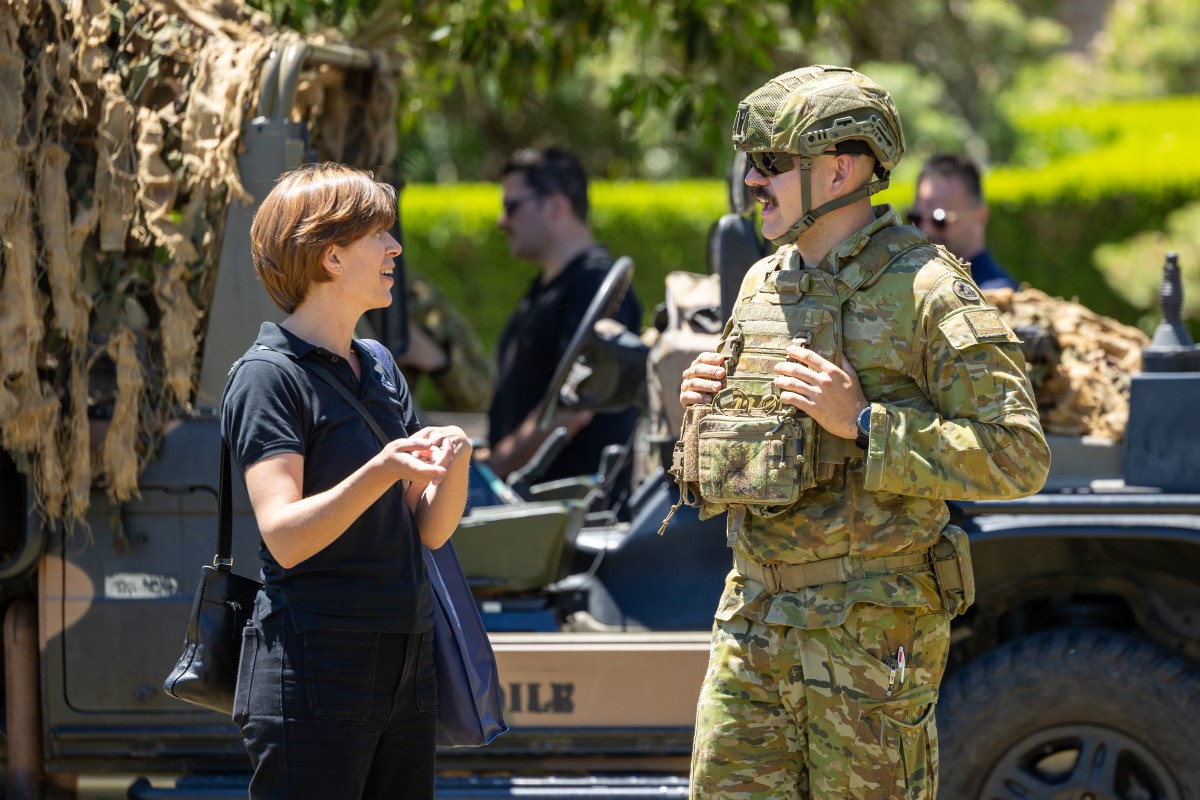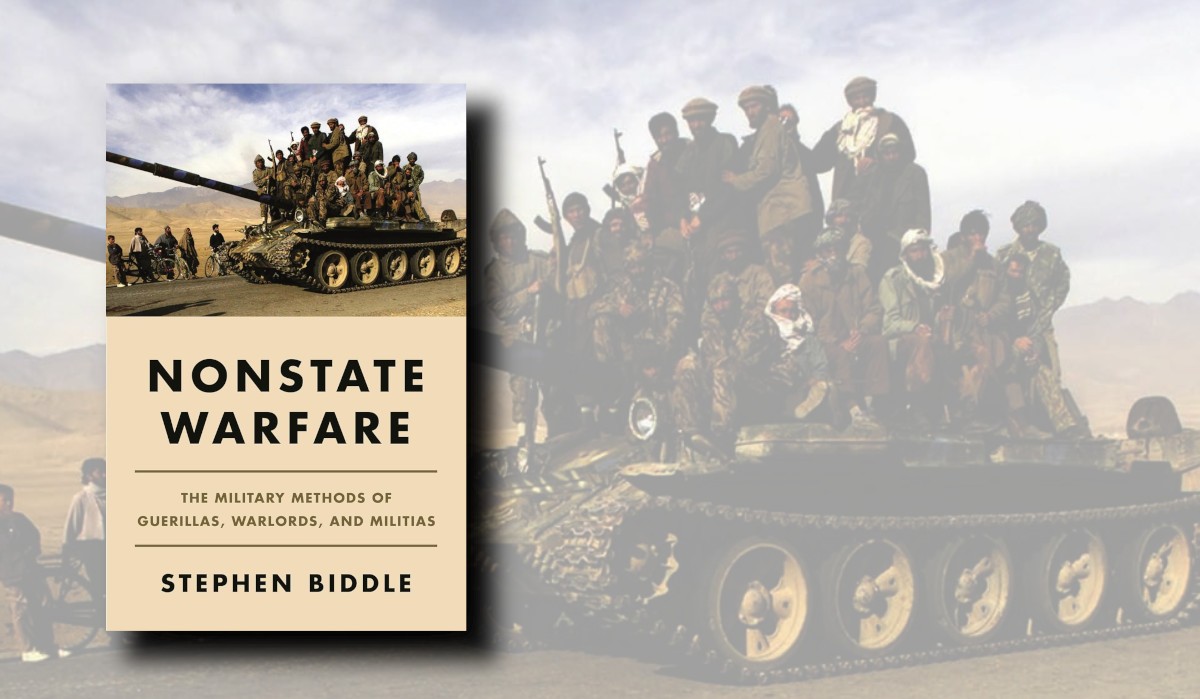It has become somewhat par for the course, in any discussion of professional reading in a military context, to quote United States Marine Corps General James Mattis (retired). Mattis commands much respect, both within the US military and in the Australian Army. He is often viewed as the modern-day soldier-scholar par excellence. His books frequently appear on Professional Military Education (PME) Reading Lists, and his quotes on the importance on military literacy are often thrown about. This is because he does not mince words nor obfuscate with flowery language. Reciting one such quote here is useful:
If you haven't read hundreds of books, you are functionally illiterate, and you will be incompetent, because your personal experiences alone aren't broad enough to sustain you. Any commander who claims he is ‘too busy to read’ is going to fill body bags with his troops as he learns the hard way.[i]
To the true military professional, the veracity of Mattis’ comments is clear and bare. Humans are learners by nature. Our brains constantly analyse observed phenomena around us, identifying patterns to inform our own decision making and (hopefully) learning from the challenges other people have faced.
The modern Australian Defence Force (ADF) varies in both its theoretical and practical support for such a fundamental aspect of the military profession. The ADF’s Philosophical Doctrine, Training and Education – Learning, does not entreat ADF personnel to read or to write (neither word appears in the document). Meanwhile, Command - ADF Leadership suggests that leaders should ‘read regularly’ and, likely channelling Mattis’ sentiments above, it observes that ‘the leader who claims they are too busy to read will learn the hard way … [with the price] paid by the team’.[ii]
Within Army’s service doctrine, however, there is clearer direction. Land Warfare Doctrine (LWD) 1.0 The Fundamentals of Land Power (2017) directs that ‘every Soldier has an individual responsibility to study the profession of arms … Self-directed study of the science and art of war, appropriate to one’s rank and trade, is at least equal in importance to maintaining one’s physical condition and should receive at least equal time’.[iii] It would indeed be an interesting exercise to examine the results of a poll of Army’s personnel who match their morning physical training with an equivalent period spent reading (or listening, if that medium is preferred). Giving such time to personnel is a key responsibility of unit commanders, with LWD 7.0 Training and Education reminding personnel that ‘unit commanders have a responsibility to develop the intellectual component of fighting power for all individuals under their command’, enjoining them to support ‘activities such as lectures, discussions, staff rides or battlefield tours, essays and supported professional reading.’[iv] Again, it would be interesting to survey such commanders to see who among them provides active support to such foundational PME activities.
With these considerations in mind, it is imperative that the Australian Army Research Centre (AARC) play its part in encouraging reading among ADF personnel and civilians working within the Defence Enterprise. Beyond the inevitable challenge of finding time’ to read, it is also difficult to know what is worth reading. Indeed, engaging with poorly constructed, ill-argued, or inaccurate works can leave the reader either unenthused or, worse, misinformed. The vast array or works that exist on almost any topic can be daunting to the prospective reader.
To this end, the Land Power Forum is introducing a series entitled the Land Power Library which will be published on a fortnightly continuing basis. In this series, Defence members, public servants, academics, and a variety of other defence-interested persons will provide reviews on books pertinent to land power and the land domain. Army has a key role in joint ADF operations as part of the integrated force and this is a wide remit. Therefore, books that are reviewed will touch upon history and contemporary issues in all domains (land, air, maritime, space, cyber), military history, military theory, Australian, regional and international history, regional affairs, and joint operations. Both old and new books will be reviewed. This is because it is just as reasonable to question, for example, if Erwin Rommel’s Infantry Attacks remains relevant to a modern audience as it is to consider whether a newly released academically-styled monograph hits the mark.
It is not only serious-minded academic works that will be reviewed in this series. While such works are important, it is just as critical to engage with a broad spectrum of topics, explored through different genres. History especially is important, as it helps form a foundation of knowledge in all human endeavours. Everything from geopolitics to tactics to science and technology has a long and storied history that needs to be understood in order to make sense of the modern world. Fiction is an important medium too. Humans are storytellers, and engaging with this form of expression is critical to understanding human motivation and experience, of which war is just one, albeit nasty, aspect. In this, fiction need not be military related to be of benefit, and indeed going outside of this genre – into sci-fi, historical fiction, classic works, and fantasy – is the best way to broaden horizons.
Such book reviews serve multiple purposes for individuals, organisations and units. Firstly, they provide an authoritative basis for the selection of reading material to ensure purchases focus on the most useful works. Secondly, it provides a glimpse into the wide array of literature available that may otherwise escape the notice of the busy professional. Thirdly, it introduces readers to a wide variety of reviewers, all of whom together form a network of military and defence thinkers, each with their own specialisations and subject matter expertise. Finally, it is hoped that the books included in the Land Power Library will serve as a gateway to related works. Many of the authors whose books are reviewed will have other works, and a book’s bibliography or reference list will detail a wide range of books, articles and the like that are also worth reading.
As members of the Profession of Arms, all members of the Army are encouraged to engage with books (paper, digital, or audio), journals, research papers, blogs, and podcasts. With the Land Power Library, the AARC will help guide this effort. Beyond this, there are already dozens of reviews published on the Land Power Forum over the last few years and in the Australian Army Journal.
If you are a serving member (of any service), a public servant within a government agency with national security responsibilities, or an academic in an related field, and you are eager to review a book for us, please contact us through our public-submission form and provide an outline of your qualifications and subject matter expertise.
For updates on Land Power Library releases, or other AARC publications, please follow our X (Twitter) and LinkedIn accounts.
About the Authors
Dr Jordan Beavis is an Academic Research Officer at the Australian Army Research Centre, having formally worked as a Researcher for the Australian War Memorial’s Official History of Australian Operations in Iraq and Afghanistan. His research focuses on the militaries of the British Empire/Commonwealth in the interwar period (1919–1939), international engagement, professional military education, mobilisation, and the state of the Army Profession.
Dr John Nash is an Academic Research Officer at the Australian Army Research Centre and a Reserve Naval Officer. Prior to this he was a Researcher for the Australian War Memorial’s Official History of Australian Operations in Iraq and Afghanistan. His research focuses on littoral warfare, sea power, maritime and naval history, and strategic studies.
Endnotes
[i] Jim Mattis and Bing West, Call Sign Chaos: Learning to Lead (New York: Random House, 2019), 43.
[ii] See Australian Defence Force, Training and Education – Learning, 3rd ed. (Canberra: Commonwealth of Australia, 2021); Australian Defence Force, Command – ADF Leadership, 3rd ed. (Canberra: Commonwealth of Australia, 2021), 16.
[iii] Australian Army, Land Warfare Doctrine 1-0 – The Fundamentals of Land Power (Canberra: Commonwealth of Australia, 2017), 38.
[iv] Australian Army, Land Warfare Doctrine 7-0 – Training and Education (Canberra: Commonwealth of Australia, 2018), 22.





